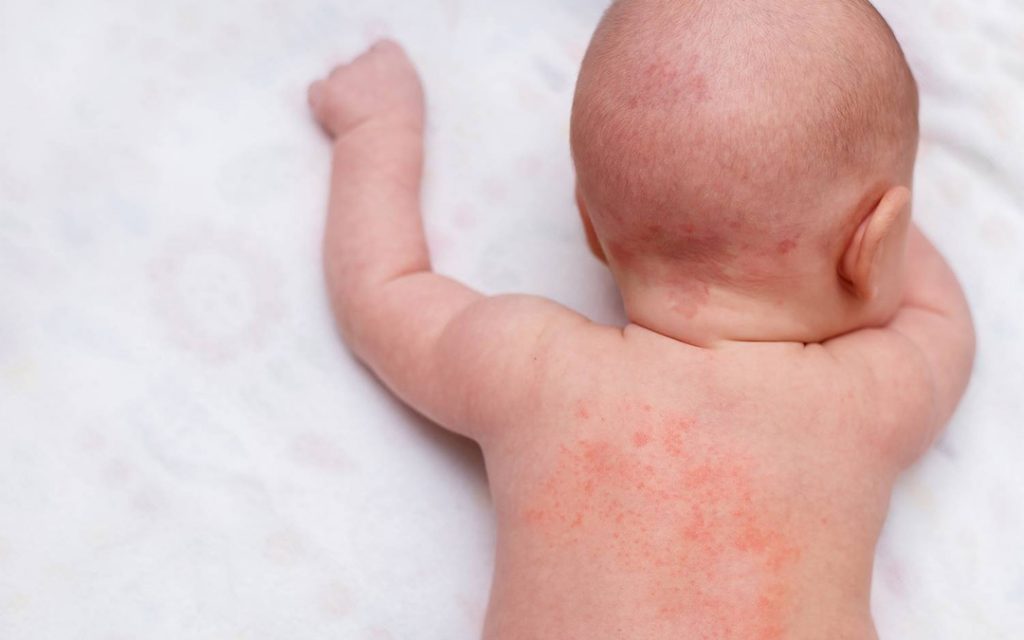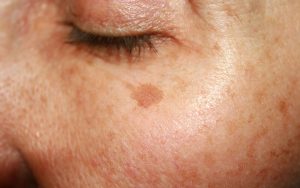Key Pointers:
- Eczema (atopic dermatitis) is common in children and may need specialist care if it becomes severe or persistent.
- A paediatric dermatologist helps manage eczema through safe, child-friendly treatment plans.
- Signs that it’s time to see a specialist include frequent flare-ups, poor sleep, or skin infections.
- Early, consistent care can reduce discomfort and help your child feel more at ease.
- Dr Joyce Lim and her team provide comprehensive skin care for children in Singapore.
What Is Eczema in Children?
Eczema, or atopic dermatitis, is a chronic skin condition that causes dry, itchy, and inflamed skin. It’s particularly common in infants and young children, often appearing on the face, elbows, knees, or behind the ears.
While many children eventually outgrow eczema, the journey can be challenging for parents. Itching can interfere with sleep, scratching can cause infections, and flare-ups can happen without warning.
Understanding when to manage eczema at home and when to seek a dermatologist’s help can make a big difference in your child’s comfort and quality of life.
When Should You See a Paediatric Dermatologist?
Mild eczema can often be managed with moisturisers and gentle skincare. However, there are times when professional care becomes important. Consider booking an appointment with a dermatologist if:
- Your child’s eczema doesn’t improve despite consistent use of moisturisers or prescribed creams.
- It’s affecting daily life, such as causing poor sleep or constant itching.
- There are frequent flare-ups that seem hard to control.
- The skin shows signs of infection (yellow crusts, oozing, or swelling).
- The eczema is spreading rapidly or causing significant distress.
A paediatric dermatologist understands how children’s skin differs from adults’ and tailors treatment to be both effective and gentle.
What Does a Paediatric Dermatologist Do for Eczema?
A paediatric dermatologist assesses your child’s skin thoroughly, looking for possible triggers and the severity of inflammation. Treatment may include:
- Topical medications: Low- to mid-strength steroid creams or non-steroidal alternatives to calm inflammation.
- Moisturising routines: Using suitable emollients to strengthen the skin barrier.
- Allergy evaluation: Identifying potential triggers such as dust mites, certain foods, or temperature changes.
- Education: Teaching parents and children how to manage flare-ups safely and prevent infections
At Joyce Lim Skin and Laser Clinic, Dr Joyce Lim and her team often work closely with parents to create personalised eczema plans that fit into the family’s daily routine.
How Can Parents Support Eczema Care at Home?
Even with professional care, daily management plays a vital role. Parents can help by:
- Applying moisturiser several times a day, especially after bathing.
- Using fragrance-free, mild cleansers and laundry detergents.
- Keeping nails short to prevent scratching injuries.
- Dressing the child in soft, breathable cotton clothing.
- Maintaining consistent routines for medication and skincare.
Simple habits like these can help control flare-ups between clinic visits.
Can Eczema Be Cured?
Eczema can’t be permanently cured, but it can be well-managed. Many children experience fewer and milder flare-ups as they grow older. Early treatment and consistent skincare reduce the chances of complications and help children feel more comfortable in their skin.
The goal of eczema care isn’t just clear skin, it’s better sleep, less itching, and improved confidence.
Frequently Asked Questions
- Is eczema caused by allergies? Not always. While some children’s eczema can be triggered by allergies (like dust mites or certain foods), many cases are linked to genetics and a sensitive skin barrier rather than a single allergen.
- Can diet changes help improve eczema? For some children, identifying and avoiding specific food triggers can help. However, diet changes should only be made under medical supervision to ensure balanced nutrition.
- Are steroid creams safe for children? When prescribed and used correctly, topical steroids are safe and effective. A dermatologist will recommend the right strength and duration to minimise side effects.
- How often should my child see a dermatologist for eczema? Follow-up visits depend on severity. Children with moderate to severe eczema may need regular check-ins to monitor progress and adjust treatment.
- Can eczema affect my child’s confidence? Yes. Visible flare-ups can make some children self-conscious. Managing eczema early and keeping flare-ups under control can help your child feel more comfortable and confident.
When to Seek Paediatric Dermatology Care for Your Child’s Eczema
If your child’s eczema is persistent, painful, or affecting daily life, it may be time to consult a paediatric dermatologist.
At Joyce Lim Skin and Laser Clinic, Dr Joyce Lim and her team provide gentle, evidence-based care for children with eczema and other skin concerns. They focus on helping families understand the condition and supporting each child’s unique skin needs.
Your child doesn’t have to struggle with constant itching and flare-ups. Schedule a consultation with Joyce Lim Skin and Laser Clinic today for their healthy skin.











